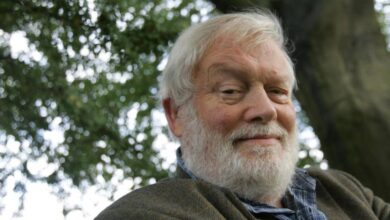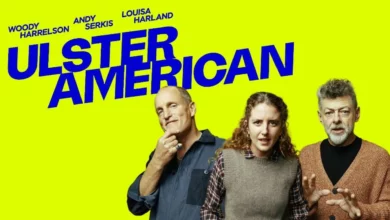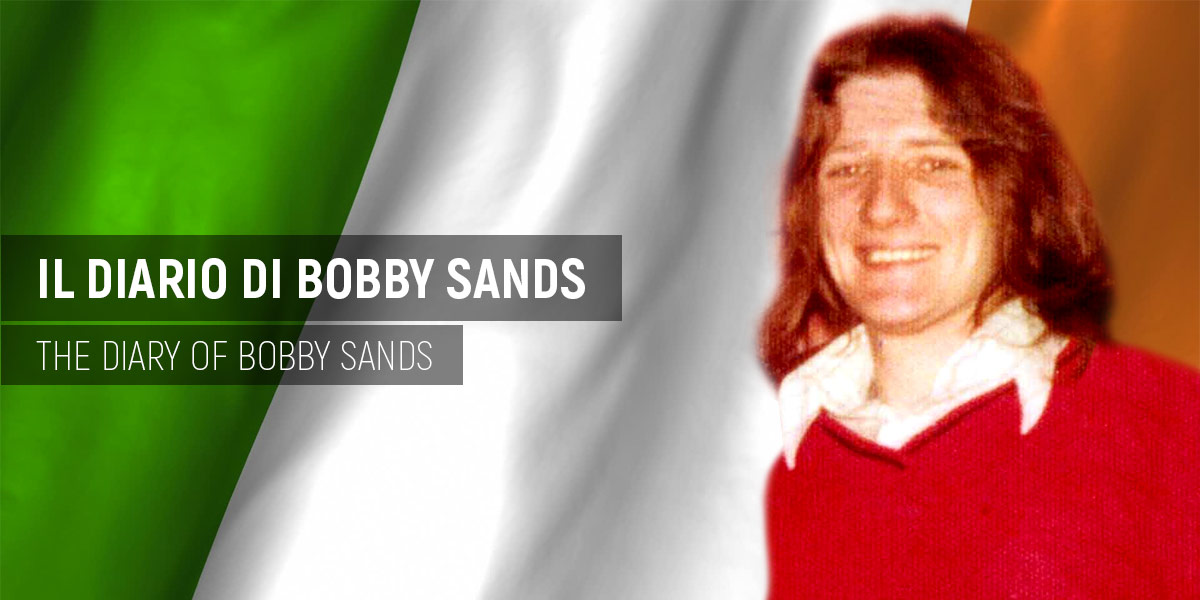What are our poets writing about?
The Guardian, Wednesday October 5, 2005
Nature, war – or washing up? As Britain’s top poetry prize is awarded today, John Mullan examines what preoccupies our leading writers
David Harsent has won this year’s Forward prize – but will anyone but academics pay attention?
Who ever made money from poetry? For much of his career, TS Eliot needed his job as editor at Faber & Faber, even if his Selected Poems would eventually, over long years, sell hundreds of thousand of copies. Philip Larkin was not a librarian just because it suited his temperament: he had to pay the bills. In is lifetime Ted Hughes, the most famous poet of his generation, sold more copies of his children’s tale The Iron Man than of any of his volumes of verse. It was only posthumously that his Birthday Letters became a huge commercial success. Perhaps only Alexander Pope ever became a rich man early in his life from the poetry that he wrote (and that was from translating Homer). “No man but a blockhead writes, except for money,” said Dr Johnson. Poets are blockheads almost to a man and woman.
Today the winner of the Forward prize for the year’s best new collection of poetry is announced. He or she will win £10,000 and a moment in the sunlight of publicity. But if, by the standards of literary rewards, that seems more than respectable, anyone visiting a large bookshop will see why the poets on the shortlist need other jobs. In Waterstone’s flagship branch on London’s Gower Street, there is an enticing display of novels that are on the Booker shortlist.
There is another, less obtrusive, for the works in competition for the Guardian First Book award. But there is no plinth of the poetry books in the running for the Forward prize. I found only a single copy of four out of five shortlisted volumes; in the fifth case, there was no copy at all.
Yet publishers and bodies such as the Forward Trust or the Poetry Book Society, which runs the year’s other big poetry award, the £10,000 TS Eliot prize, have never tried harder to find a wider public for contemporary poetry. It is not just a matter of marketing. It may be going too far to call this a “golden age” for poetry, as this year’s Forward judges have done, but most of the poets jostling for these prizes do seem to be reaching for a readership beyond the seminar room. Sales of particular volumes may often be counted in the hundreds rather than thousands, but poetry does escape to what Milton called a “fit audience, though few”. Free, unlike novelists, to be as recondite as they wish, they have surprising taste for accessibility. It might surprise traditionalists to find a common interest in poetry’s formal polish and patterning, even rhyme and scansion.
So what preoccupies the nation’s poets – aside from obtaining the university posts teaching creative writing that now sustain many of them? The Forward prize was explicitly set up for writers who reach out to a “general readership”, and it does seem that the poetry of natural description is often what general readers are perceived to want. Last year, Kathleen Jamie won with The Tree House, the poems in which enacted a minute scrutiny of nature – flowers and trees, birds and wild animals. Alice Oswald has certainly shown herself to have appeal: her collection Dart, first published in 2002, has had five-figure sales – an extraordinary achievement for a book of new verse by a previously unknown writer.
The long poem follows the course of the river after which it is named, taking in as it goes the voices of those who have lived by it and from it. Varying its rhythms and stanzas, rushing or meandering, the poem is itself riverine, following a course without interruption or division. Oswald lives in Ted Hughes territory, and writes in it too.
The very sense, proclaimed in a prefatory note to Dart, that the poem visits known places attaches Oswald to a certain pastoral tradition, a poetry of locality and of natural description that remains appealing for the common reader. Oswald is on the shortlist this year with her latest collection, Woods etc. (Faber & Faber), which explores an elemental landscape that you know must be, for her, close to home.
The judges also tend to pick out what we might call the poetry of common experience, as evidenced by this year’s shortlist. Alan Jenkins’s A Shorter Life (Chatto & Windus) revisits the suburban haunts of what is indubitably the poet’s own childhood. The volume is full of poems in memoriam, and has at its heart a cluster drawn out of him by the death of his mother and the memories detonated by that loss. Alongside his cynical verses on the “literary life”, this is raw memoir, held firm only by its habitual rhymes.
Fellow nominee John Burnside’s The Good Neighbour (Jonathan Cape) is rooted in domesticity and habit. It makes a kind of necessary virtue of poetry’s inability to transcend “the probable world”. Nothing comes from the poet’s “elsewhere” of “dreams and songs”; instead there is “the sullen gift of everyday events:/ the promise of rain, a footfall, the dread of belonging”. In ordinary things, in ordinary places, it finds mysterious qualities. Rarely has a poet described so often staying up too late or rising too early, seeing the familiar in a strange light. (A reader noticing the autobiographical vein might note that shortlisted poets tend to be middleaged, and their poetry correspondingly rueful or melancholy.)
John Stammers is more of-the-moment in his references, with a liking for jokey conceits and youthful chattiness. But for all the references to Tarantino films and fashionable cuisine in his volume Stolen Love Behaviour (Picador), they are mostly poems about love affairs and frequently invite autobiographical inferences. Of the shortlisted volumes, perhaps the furthest from experience is David Harsent’s Legion (Faber & Faber), whose long title sequence consists of disturbing reports from some imagined, yet horribly familiar, war zone. Clearly they are influenced by his translation of Charles Simic’s poems recording the siege of Sarajevo.
Harsent’s war poems are like reports from another land, and make you conscious of the likely choice of subject matter for an English poet.
It is no accident that Northern Irish poets (Seamus Heaney and Paul Muldoon most famously, but also others such as Derek Mahon, Michael Longley and Medbh McGuckian) have won such status. History has given them terrible and compelling things to write about, and has required them to mesh private observations with public themes.
This may also explain in part the appeal of Nick Laird, whose collection To a Fault (Faber & Faber) is the one book of new poetry that you will find in piles in Waterstone’s. A cynic would say that the 30-year-old Laird is a publicity department’s dream: he has just published a successful first novel, he is married to Zadie Smith (to whom the volume is dedicated), and he too is from Northern Ireland.
The latter fact gives an unEnglish toughness, perhaps a self-conscious toughness, to his poems, with their metaphors of murder and punishment. The first and best poem in Laird’s collection, Cuttings, is characteristic, describing how his father’s regular visits to the barber, with its “scenic wall-calendar of the glories of Ulster”, allowed him his only conversational escape from “the troubles or women or prison”.
Widespread appeal is not only about subject matter, however. Over the past decade, Carol Ann Duffy has been the most popular living poet in Britain, her sales greatly helped by the fact that she has succeeded Hughes and Larkin as the most common representative of contemporary poetry in schools (and, it seems, the most commonly read writer of verse after Shakespeare among interviewees for university English courses). There is a suspicion that Duffy, feminist and leftish, reassuringly suits the political preconceptions of many educators, but there are also aspects of her poetry that appeal to English teachers for good practical reasons. Her poems are frequently humorous; they use clear schemes of rhyme and metre; they can be satisfactorily decoded by the diligent close reader.
But there are some poets who will never sell widely or appear on these shortlists, which are selected from what is often called “the mainstream”. Poetry also has its avant garde, a fact that was illustrated when the most up-to-date volume of the new Oxford English Literary History singled out JH Prynne as the poet of recent decades whom posterity would most admire. This mere opinion made the news on Radio 4’s Today programme: the educated presenters had heard of Philip Larkin, but who was this Prynne man?
Prynne’s poems are likely to defeat the common reader; even an admirer calls them “dense and alarming”. Though most have a poetic shape on the page, there is no recognisable human voice speaking to you in them. They are places where vocabularies from different places (economics or science, for instance) unexpectedly intersect. They do not tell stories or describe experiences. They are usually about language itself. They will probably not make you look at nature afresh, but they might send you for an interesting trip through the Oxford English Dictionary.
Prynne does have passionate adherents. Observers talk of “the Prynnites” as shorthand for avant-garde English poets. For these postmoderns, much mainstream poetry is out to evade the lessons of modernism. Modernists such as Eliot put paid to sentimental lyricism and versified memoir. Poetry was to be impersonal, to challenge our habits of thinking about ourselves, to be difficult. And since Eliot’s The Waste Land was launched on a perplexed literary world, no one can be sneery about poetic difficulty without some inner uneasiness. These spats between schools of poets are not just arguments about taste, they are disputes about what poetry should be. But the smallness of the poetry world magnifies differences of opinion, making for spats that have been compared to “a knife fight in a phone box”.
Those who would like to bridge the gulf between mainstream and avant garde find themselves caught up in the battle. When, with David Herd, Robert Potts took over editorship of the previously mainstream Poetry Review in 2002, it was with the aim of giving “a fairer sense of the true diversity of British poetry”. Potts describes some of the poetry of Prynne and his fellow experimentalist John Wilkinson as “beautiful and astonishing”. On the pages of Poetry Review, the postmodern, he hoped, would rub along with the conventionally lyrical. Three years later he retired bruised from the field, still surprised at the hostility he had managed to arouse.
As poetry editor at Faber & Faber, with a backlist that must make him feel secure against the vagaries of fashion, Paul Keegan is more cheerful about the variety of poetry published in Britain. There are more active editors and publishers of contemporary poetry than ever, he thinks, and rancour is difficult to sustain when the so-called mainstream itself is so variegated.
And a few big names do manage to achieve both accessibility and respect amongst academics. The obvious example is Seamus Heaney who has a wide readership as well as a bevy of students writing essays and theses about him. There are dozens of critical studies of his development as a poet. In the groves of the academy, his fellow Northern Irish poet Paul Muldoon is almost as renowned. Now in his 50s, Muldoon burst on to the scene in 1973, when he was just 21, with his brilliantly assured first book, New Weather. Even the fact that, by some strange accident, the first edition was printed entirely in italics made the volume seem pressing. Through the 70s and 80s he produced a series of clever and tirelessly inventive collections.
The typical Muldoon poem of this period is a short, enigmatic narrative – perhaps fantastic or historical – which quizzes the reader to find out its significance. His poems appeal to academic critics by appearing postmodern: the voice that speaks evades autobiography, poems are made of layers of quotation and misquotation, nowhere can we trust that the poet speaks of his experience. John Carey has complained of Muldoon’s poetry being “packed to the gunwales with higher education”, all ready for academic consumption. Yet his poems offer traditional poetic pleasures too. You can see and hear the care with which they have been formed. Many are connected by elaborate schemes of rhyme and half-rhyme. A significant number are, when you look closer, sonnets, and he enjoys other established forms such as sestinas or terza rima. The technical accomplishment is undeniable.
Muldoon is hugely influential on British poetry, but having grown up in County Armagh, he is not exactly a British poet. (He has lived in the US since 1987, and in 2003 was awarded the Pulitzer prize for poetry for Moy Sand and Gravel, confirming him as an author adopted by America.) Entirely unadoptable by the US, however, despite holding a chair at Boston University, is the other great name among living poets, Geoffrey Hill. In many people’s eyes, Hill is just what a poet should be: remote, austere, personally as well as poetically difficult. He is the closest of all living British poets to becoming a classic, yet committees awarding prizes do not choose him because he is just too forbidding. “And anyway,” as another poet told me, “he would certainly never come to any prize-giving ceremony.”
The opposite of a populist, Hill’s erudition can be daunting, not least because it is likely to involve German or Latin, as well as English, literature. Even less modishly, Hill is a poet preoccupied with Christianity and its history (he is officially professor of literature and religion). Occasionally his recent work has descended to irate splutterings against contemporary culture, but much of his poetry already seems destined to outlast detractors. “God/ Is distant, difficult”, says one of Hill’s great short poems, Ovid in the Third Reich; distant and difficult are Hill’s poems, yet they always give you the confidence that you can press on, that their meanings are not open to whim. Ambiguities are precise; language’s dormant idioms wonderfully reanimated.
Significantly, one of Hill’s big advantages has been having a big critic to explicate his poetry – Christopher Ricks, the pre-eminent close reader of English poetry and editor of The Oxford Book of Verse, has long championed Hill. In the long run, however dusty their embrace, it is the attention of academics that gives poets their standing. Hill, Heaney and Muldoon have attracted competent criticism explaining their achievements, so they have painlessly passed into university syllabuses. In contrast, however, there is strikingly little criticism of the rest of British contemporary poetry. While the prizes and their attached ceremonials are good propaganda, poets need translators to help them find readers.
Yet in their hearts, poets cannot help but think that the fizz and splutter of contemporaneity is besides the point. The only reputation that matters is posthumous. Death, makes the poet’s reputation secure, or fails to do so. The poets competing for prizes every year would surely forsake any prize money for the sake of just one timelessly memorable poem to leave behind them.





